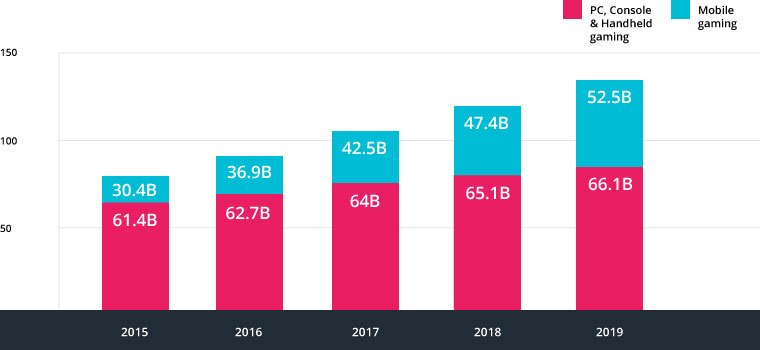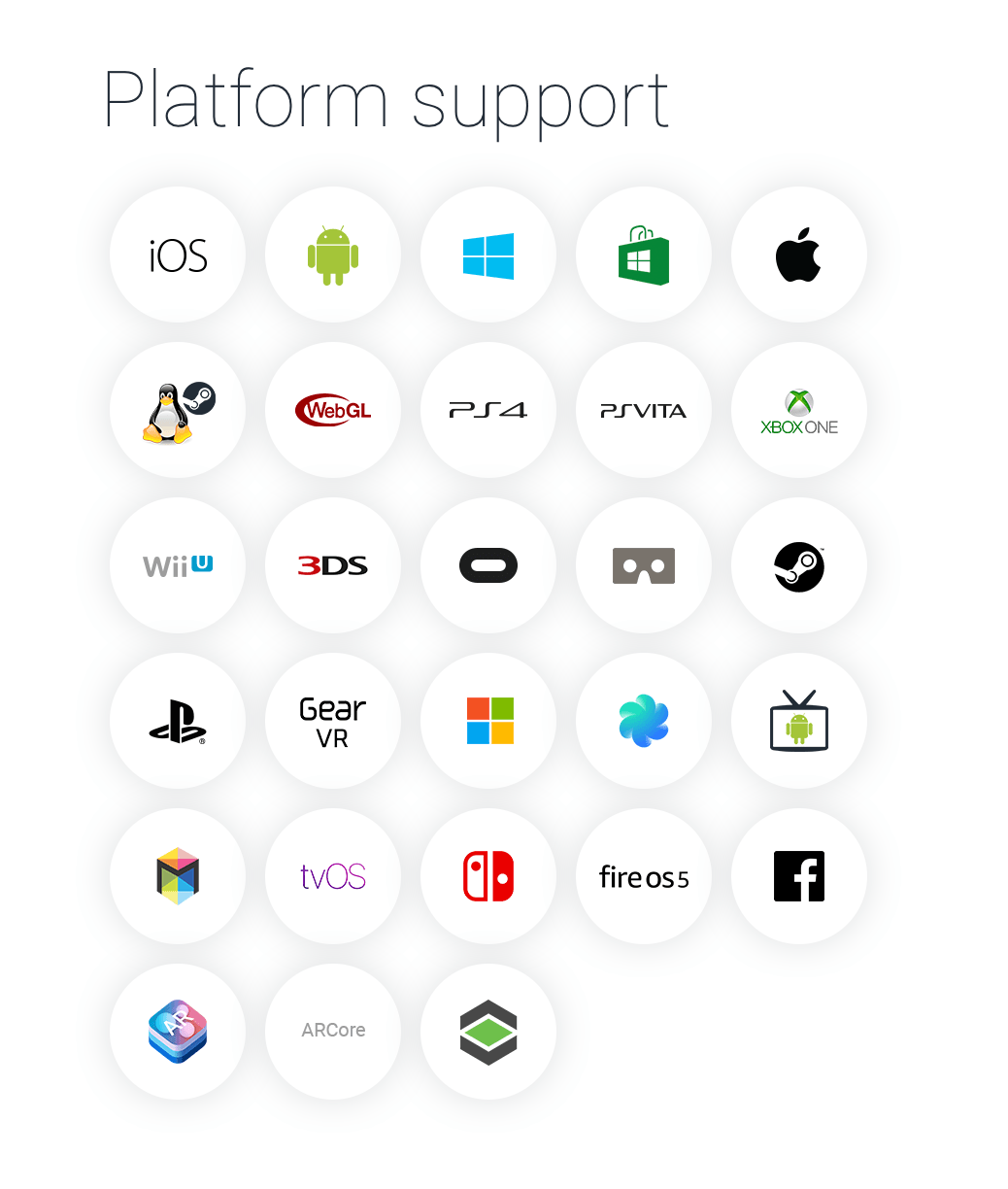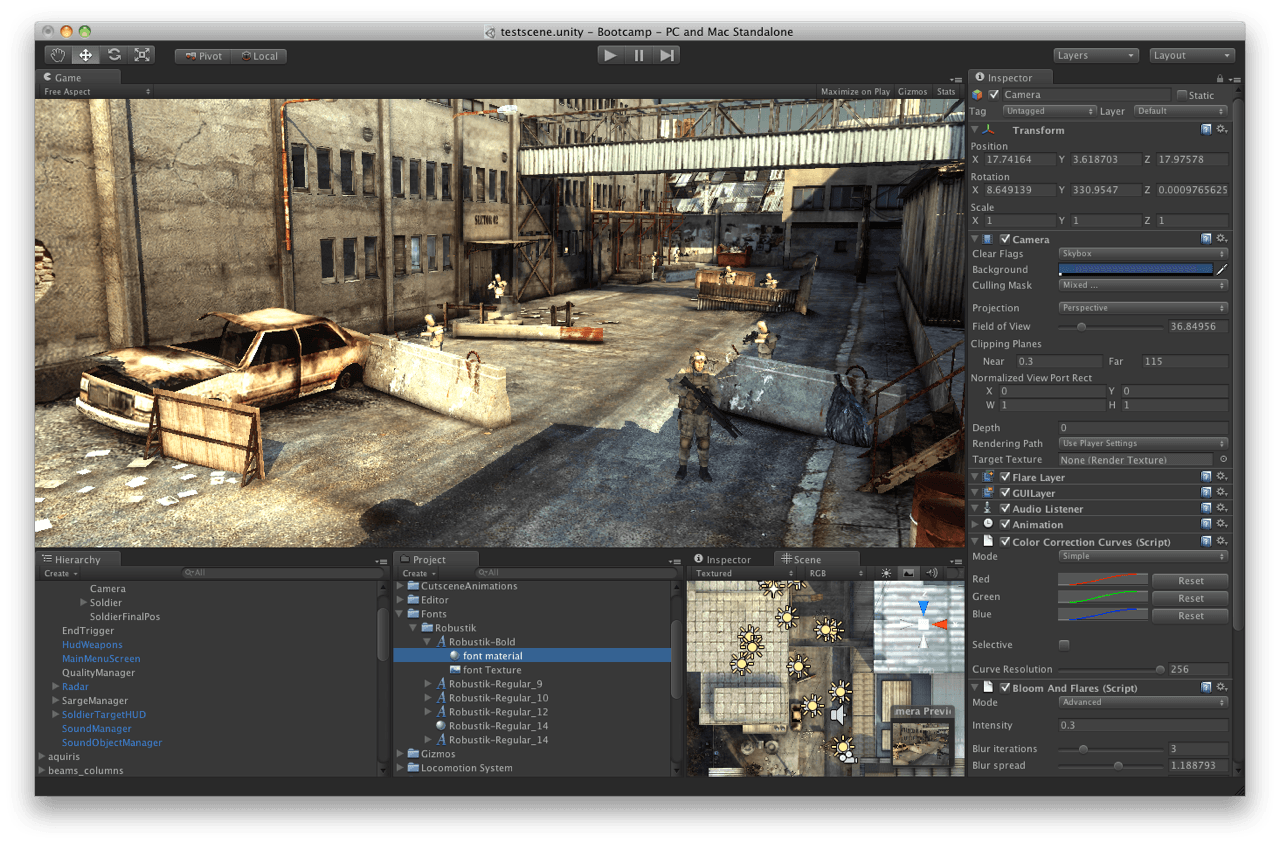Unity Engine: A Unicorn Powering the Video Game and VR/AR Economy.

Winner: Unity Engine is the unicorn fueling growth in the video game industry:
“50% of mobile games are developed through the Unity Game Engine.” and “There were 5 Billion downloads of Unity powered Games in Q3 2016.”
The worldwide video gaming market in 2017 is estimated to be worth $106 Billion, and is anticipated to grow to $143B by 2020. Of this market, the fastest growing segment is mobile gaming, estimated to be worth $42.5B.
Fueling this market, is year over year growth in the number of video games being released. Historically, major video game studios such as Ubisoft, Nintendo, Electronic Arts, etc. released games developed on inhouse software. However, the emergence of accessible programming platforms called ‘Game Engines’ mixed with reduced cloud computing costs have made video game development more accessible and rapid to the masses. This accessibility has led to the emergence of indie-gaming companies that produce and publish games without a major game publisher.
Today, a wide spectrum of indie programmers to established entertainment companies are utilizing game engines to build video games, mobile apps, and VR/AR experiences. According to a McKinsey Report, the firm estimated that the game engine industry was growing between 21-36% per annum from 2014-2016. (2)
Unity Engine has emerged as a winner in the game engine market, and has a unicorn valuation to prove it. According to TechCrunch, in 2017 the privately owned Unity raised $400M from Silver Lake (PE Firm) at a reported $2.6 Billion valuation. (3)(5)
(4)
According to Unity’s website, Unity now controls 45% of the global game engine market (Nearly 3x any competitor). Other data points continues to support this industry dominance. According to Unity’s website:
- “There were 5 Billion downloads of Unity powered Games in Q3 2016.”
- “2.4 Billion unique mobile devices are running a Unity powered game.”
- “34% of top 1000 free mobile games are made with Unity. (Including Pokemon Go)”
- “Unity games reach 770 million people around the world.”
- “50% of mobile games are developed through the Unity Game Engine.”
- Based on a survey of 10,000+ app developers by Developer Economics, 47 percent reported using Unity. (4)
(1)
Unity has made strategic decisions that are positioning the 14 year old company for continued success. According to Unity Technologies CEO John Ricitello, ‘Unity has a lead on the platform of the future.’ Ricitello claims that Unity invested heavily in AR/VR functionality and currently 70% of all VR applications are built in Unity. 59% of all VR developers are using the Unity engine. (5)
Unity has built a powerful business model to fuel this type of industry dominance. First, the gaming engine is free to download and has a deliberate focus on low learning curve for beginners. The company vertically integrates by providing tools for building video games, monetizing them with ads, analytics on game use, and rendering for multi platform support.
(1)
Unity’s business model relies around a SAAS model and an online Asset Store. The SAAS model has three pricing tiers and is royalty free. Secondly, the Asset Store allows a community of users to buy and sell renderings of animations, environments, characters, vegetation, AI tools, music/sound effects, etc.
(1)
By making video game development user-friendly with no barriers to entry mixed with a forward looking focus on mobile and VR/AR app development, Unity has positioned itself as a dominant market force that both creates and captures value in the $116B and rapidly growing video game market.
Photo Of Unity Engine:
Citations:
(1) https://unity3d.com/public-relations
(2) https://www.mckinsey.com/~/media/McKinsey/Industries/Media%20and%20Entertainment/Our%20Insights/Development%20drivers%20Third%20party%20engines%20and%20mobile%20gaming/Development-drivers-Third-party-engines-and-mobile-gaming.ashx
(3) https://techcrunch.com/2017/05/23/unity-whose-software-powers-half-of-all-new-mobile-games-lands-400-million-from-silver-lake/
(4) https://thenextweb.com/gaming/2016/03/24/engine-dominating-gaming-industry-right-now/
(5) https://venturebeat.com/2017/05/25/why-unity-was-able-to-raise-400-million-at-a-2-6-billion-valuation/








Interesting piece! It seems like Unity is well set-up for continued success as a third party video game engine, especially for mobile. However, I did have a couple of thoughts on potential risks for the business down the line.
First, the video game market is growing more and more concentrated with the largest game publishers globally continuing to gain share. Part of this is due to these publishers’ efforts to increase the amount of time players can spend on the best “AAA” games (e.g., Call of Duty, FIFA), but the end result is that user time spent seems to trend more and more toward fewer titles. With these fewer titles concentrated in the hands of large publishers who have every incentive to keep development in house using proprietary engines (e.g., EA’s FrostBite engine), is there a potential cap to the size of Unity’s addressable market? As these AAA publishers move more of their games to mobile, is their a larger competitive risk to Unity?
Second, while mobile is the fastest growing piece of the gaming market globally, dis-aggregating that growth shows that the majority of growth has come from the Chinese gaming market, which is dominated by local players like Tencent. The chinese market is also notoriously protectionist – foreign publishers actually can’t distribute games in China without a partnership with a local company like Tencent or Netease. Can Unity effectively tap into the developer ecosystem in China, and can it navigate the regulatory hurdles that might exist?